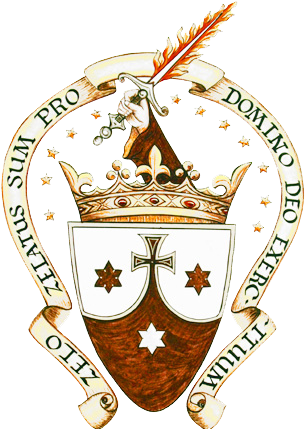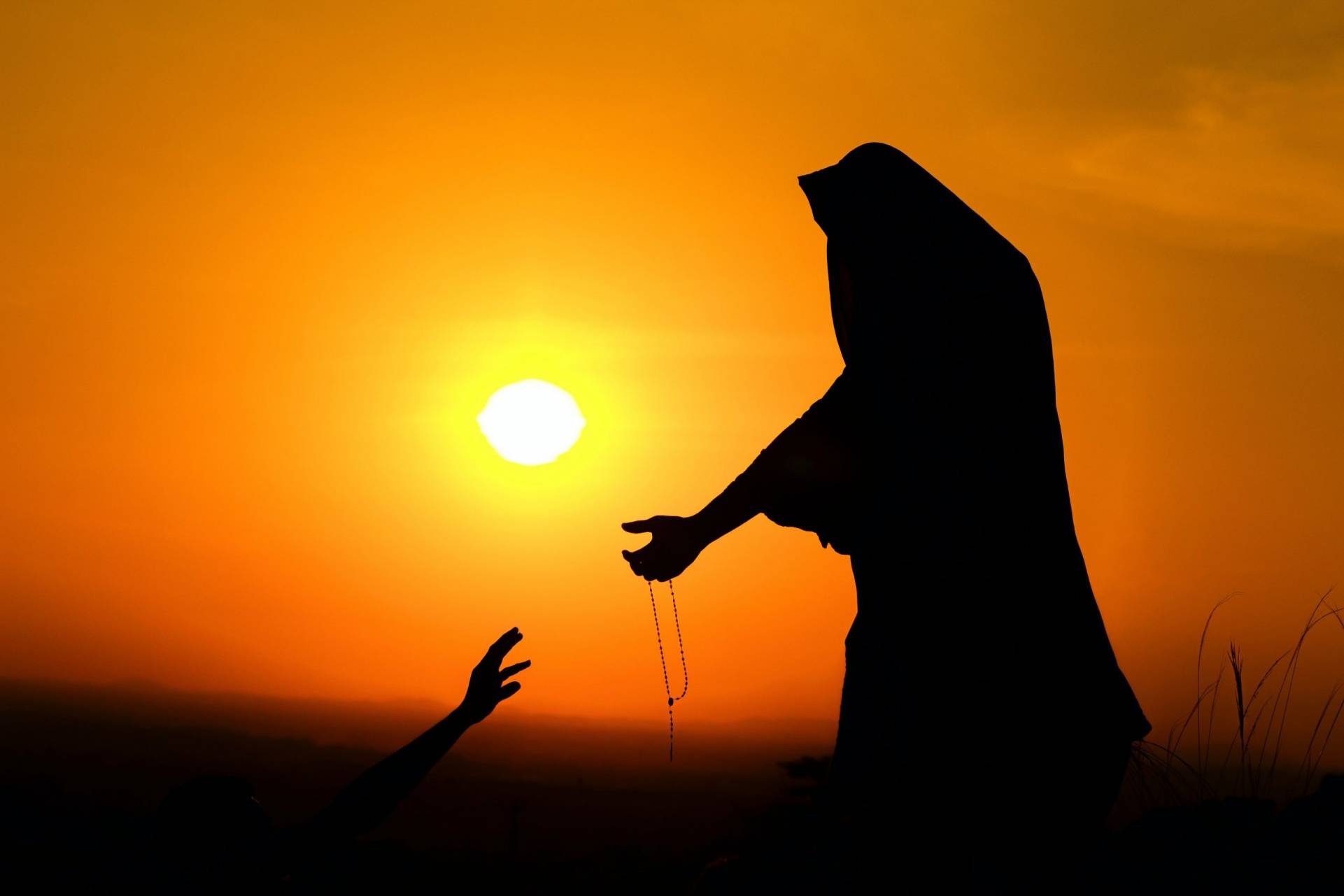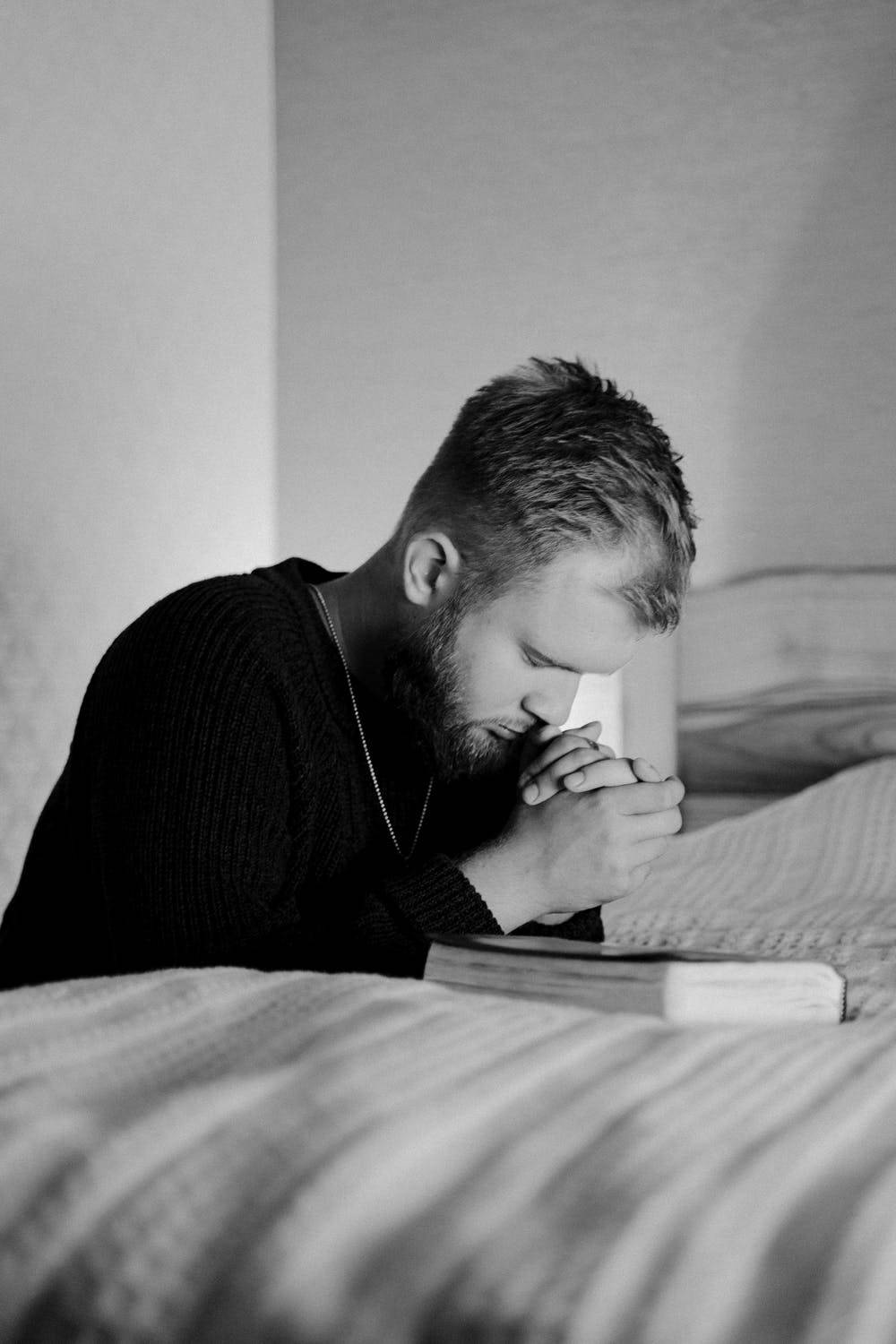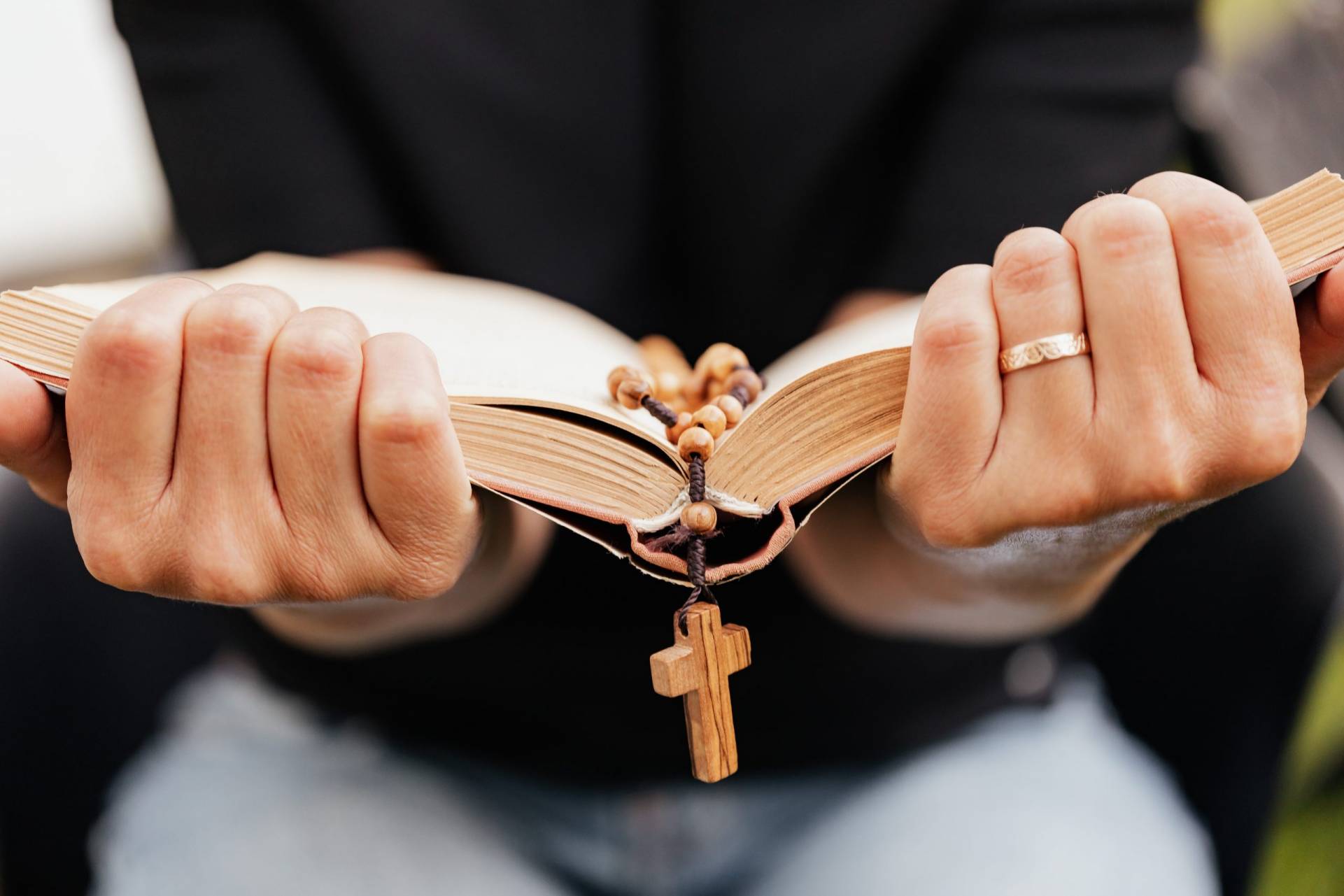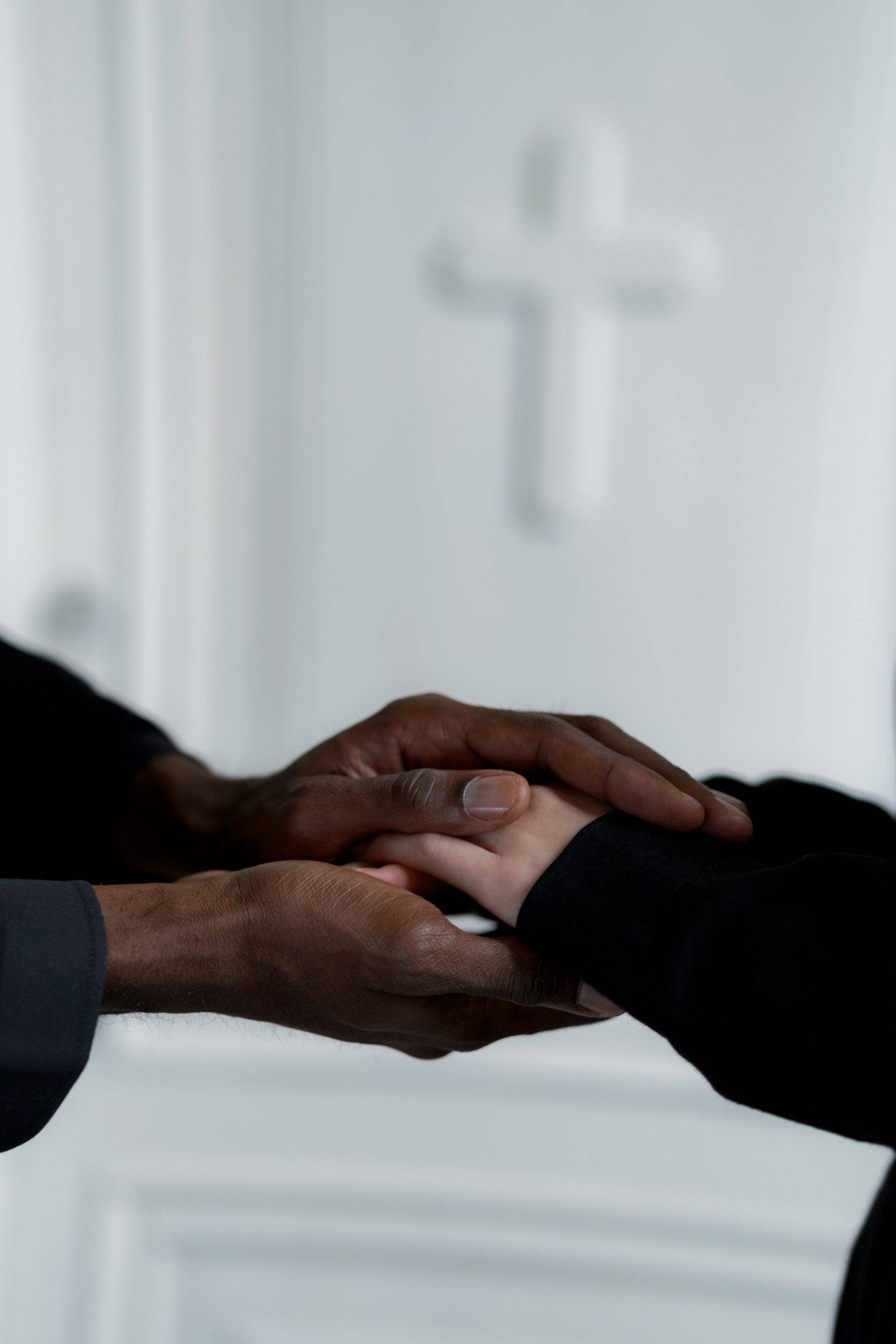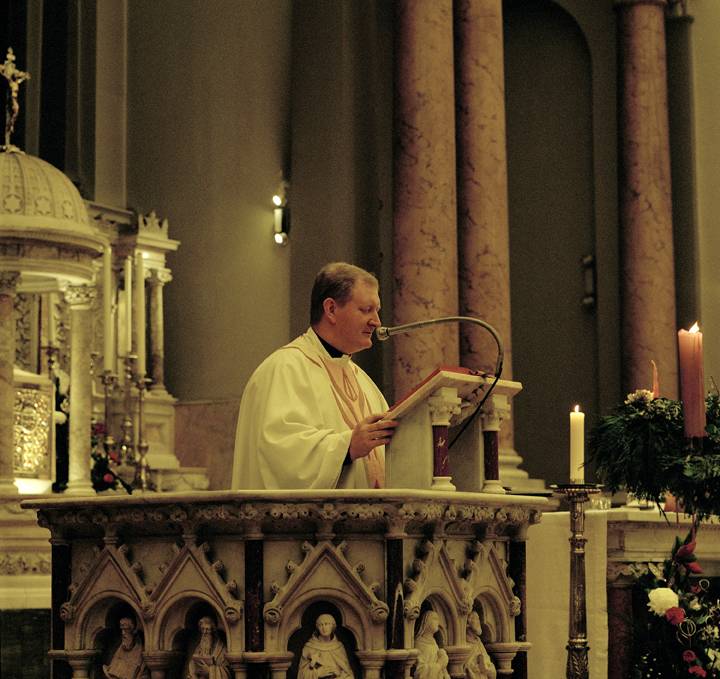What is God’s plan for you? A Vocation is from God.
God calls each of us to live in love with him. We live that love in marriage or single life, in priestly or religious life.
A call to religious life can start with a sense of emptiness and a need for something more in life or an attraction to a life of deeper prayer and community.
You may know someone in religious life and feel attracted to that way of life.
God calls everyone to follow him. He has a task for us all, which only we can fulfil. Some he calls to Religious Life. It is such a privilege to be called by God. Maybe God is calling you to serve him in Carmel?
Is God Calling Me?
“Joy comes with being together and praying together.”
Fr Tijo Xavier OCD.
A prayer for guidance
The first step for guidance is prayer, trusting that God will lead you wherever is best for you. God wants your happiness and will lead you into a way of life that will make you happy.
Lord Jesus Christ, Son of God,
I praise you. Purify my soul,
Live in me, and love through me.
Show me how to serve you peacefully today
And lead me along the path in my life
That will give most glory to you. Amen.
A vocation, is a calling from God, and demands a free response and total dedication from those who receive it. Every effort must be made to help one to become aware of their calling, and to follow it with enthusiasm.
God calls each of us to live in love with him. We live that love in marriage or single life, in priestly or religious life.
A call to religious life can start with a sense of emptiness and a need for something more in life or an attraction to a life of deeper prayer and community. You may know someone in religious life and feel attracted to that way of life.
You may feel a call but do not really want to go there!
Perhaps it is not what you had planned for your life.
You may feel unworthy of a call to religious life. Do not be afraid! Anyone who has ever contemplated a vocation to religious life, knows how challenging and frightening it can be. All of us have walked this path and felt the vulnerability of not knowing what these feelings might mean for us. But do not be afraid, a vocation to religious life, like any other worthy vocation is built on time, prayer, wisdom and friendship. Take your time, there is no rush, talk to someone you trust, listen to your heart especially at times of prayer. You can contact us at any time for an informal chat about who we are and our charism or simply about where you feel the Lord might be calling you.
Life of Prayer
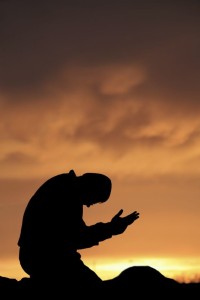
- It is the very vocation of a Carmelite to bear witness to a life of prayer. A special part of our prayer is time spent with God in silence.
- Sustained by the word of God and the sacred liturgy, we are led to live in intimate friendship with God.
- In prayer, we are called to a ‘hidden union with God’, in a form of life and fraternal sharing in which contemplative prayer and action combine to become a single apostolic service of the Church.
- By growing in the virtues of faith, hope and above all charity, we deepen our prayer life, and come to resemble more closely Christ himself.
How will I know if God is calling me to Religious Life and especially to the Discalced Carmelites
by Fr. John McGowan OCD
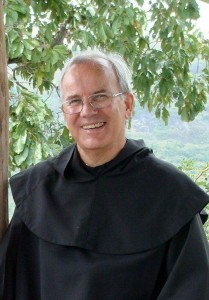
This is a good question and one that some people ask themselves. Though, I suspect, it doesn’t begin like that. It can begin with a feeling; always trust your feelings. That feeling can be nagging at you for some time, even years. It can begin with a feeling of dissatisfaction with what you are doing. At least that is the way it was for me. I left school and began working in a shipping and forwarding office in London. For a while I loved the job. The novelty, the introduction into an adult world, where I got paid and called adults by their first names. It was a great place for making friends and for having fun. However, after a while I wanted more. At that stage I thought it was just the company I was working for, so I changed companies. Five times! I even worked in Paris for a year. In the end I didn’t know what I wanted except I didn’t want to remain in this business. It was a time of reflection and frustration.
Not everyone will have this experience. People come to Carmel from all kinds of backgrounds and reasons. Straight away I have to say that not everyone who joins necessarily has a vocation. I joined with seven others; three of them left in the first year. We finished with three. My thoughts on this subject of discernment are my own, based on my own experience and from what I have gained from listening to others and reading the odd article.
Before I joined the Discalced Carmelites I had just come back to the Church after an absence of several years. But now that I was back it was with a vengeance. I focussed on the Church for the first time in a long time, and became happy and motivated. So, one of the signs I would be looking for in someone discerning their vocation is: how important is the Church in your life? I would expect a candidate to be very familiar with their local church, to know the parish priest, to be involved in some activity in the Church; be that reader, Eucharistic minister, music liturgy, catechist or working with youth. This would be an important sign. A religious is dedicated to working in and for the Church.
I would expect support from the family and friends. When I first had the idea of vocation, I must admit, my parents were not aware of how deeply I felt, though my mother wasn’t surprised when I told her I wanted to become a priest. My brothers and sisters were happy as long as I was; but my footballing friends were surprised. One of them said to me in a pub just before I left “John, don’t change”. I’ve never forgotten that. Was it advice? I can now say that I haven’t changed, though hopefully in some deeper ways I have. So, those closest to you, those who know you best, should not be surprised at the way you are thinking.
If you are joining a religious order like mine, then you will be living in community. So, it is important to be the kind of person that likes being with others, who is fond of people; not necessarily gregarious but has a deep love for his or her fellow man or woman. Most religious tend to be introverts rather than extroverts but that doesn’t mean they don’t like living with others; just they need a bit more space. In my Order, privacy is sacred. My experience is that most religious are discreet and kind and generous. Good qualities to have when you are with others.
You don’t necessarily have to be pious or prayerful. This can come later. That said, prayer should be considered important, and should be part of someone’s life. It is through prayer that God normally calls people. This is a good time to remind you that vocation is a calling: it is God calling us, not the other way round. And if God is calling you then He will make this known to you in His own good time. The waiting can be important. It has a purifying effect. I waited for at least two years for God to show me what He wanted me to do. In the end, after all the waiting, the frustration and soul searching, I knew what I wanted.
So important at such a time of discernment is to find a spiritual director. It can be your parish priest, or a religious you know. It needs to be someone you know and trust; someone with lots of experience and intelligence. This is key in your process of deciding if God is calling you or not. Remember that most people who think they are being called are not. I am judging this from being in the novitiate with eight others; only four finished. Then in the seminary, we were over thirty at the beginning, but less than half that number went on to be priests. Those who left would find their true vocation: for when one door closes another opens. A director will be like a mirror reflecting back to you your thoughts. He should be a good listener. His or her role is not to tell you what to do, but to guide you. Only you can know if you have a vocation. It is between you and God. Once God makes it known to you then there will be a certain certainty.
You must be patient. Wait upon God. Keep praying. I was advised to pray a certain prayer before going to bed at night: “Show me Lord your way, so that I may walk in your truth”; it’s from the psalms. A holy bishop taught me this. The Lord will not keep you waiting too long.
Nowadays people look up religious Orders and Congregations on the internet. This is a good idea. However, you have to visit to get a fuller picture. How often have I heard religious tell me that when they joined their congregation they felt at home as soon as they walked in the door, or soon after. A gut feeling can be a good one. Remember to trust your feelings. Then back to the spiritual guide to share with him/her your impressions. With the combination of prayer, guidance and research something will happen eventually. It is a question of waiting. Don’t become anxious. Nor, think, that you are not doing God’s work. Today, right now, you are working for God.
I could go on but let me finish with something St Teresa of Avila would want to say to you. She would stress the importance of knowing yourself. This is so important. Be honest with yourself and be open. The more honest you can be the easier it will be for you to hear God calling and know what it is He is asking you to do. Don’t pray telling God what to do but rather, listen to Him, wait upon His word; then, say “fiat voluntas tua” (“Thy will be done”). If God is calling you to Carmel you won’t want anything else.
Just one last word, if you are called to Carmel, then you should be attracted to Carmelite spirituality, to one of our great saints, particularly Teresa of Avila or John of the Cross, or Therese of Lisieux. Or, you may be ignorant of these but love to pray. This too can be a good sign. Carmel has a wonderful tradition of prayer and spirituality. We are blessed with several Saints and even more Blesseds. We need more Teresas and Johns.
The Carmelites Life is the life for me
Our ‘pattern of life ’is outlined in the Rule of St Albert. This remains basically the rule that governs our life today, calling us principally:
- To live in allegiance to Jesus Christ, serving him with a pure heart and a good
- conscience, looking to him alone for salvation, as we obey our superior in a spirit of faith
- To reflect on Our Lord in the Scriptures, so that the word of God may be always in our hearts and on our lips, and guide us in everything we do
- To come together daily for the celebration of prayer and the Eucharist
- To put on the armour of God, faith, hope and charity, in a spirit of evangelical self-denial and a generous commitment to work
- To enter into a genuine sharing of life in fraternal love, having at heart the good of the community and the salvation of souls
- To hold everything in common ownership
- Above all to lead a life of unceasing prayer in silence and solitude, in accordance with the gospel which tells us to watch and pray
- To use prudent discretion in all that we do
What is a typical day in a friar’s life?
- While the schedules from one friary to another may vary a little, according to the friaries and make-up of a particular community, they will all share a basic structure which is comprised of a few key elements:
– Daily Mass
– Liturgy of the Hours
– Two hours of mental prayer
– Scheduled recreation
– Community meeting
- Weekends may also vary a bit as ordained members are called upon to serve the local church, celebrating the Holy Mass for the people of God, in parishes or for other religious communities.
In general, the atmosphere of the friaries is quiet and prayerful. The Friars arrange their work schedules around the community acts of prayer, recreation, and meals. In most friaries we spend between three and four hours in formal prayer (including Mass, Liturgy of the Hours, and mental prayer). - Since this is a principal part of our service to the Church as contemplatives, we seek to balance the demands of the community and ministry so to assure the primacy of this prayer in our life.
A vocation, is a calling from God, and demands a free response and total dedication from those who receive it. Every effort must be made to help one to become aware of their calling, and to follow it with enthusiasm.
In order to best discern one’s calling it is best to be truthful about all aspects of one’s life that are called into question. This openness goes both ways and will aid the discernment process.
It is good to spend periods of time within the communities, getting to know the way of life. This is also a way for the community to get to know the searcher too.
Basic requirements
- Between 20 and 40 years of age
- College degree preferred
- Free of substantial debt and without dependents
- Certificate of Baptism and Confirmation
- Several visits to our monasteries
- Live-In retreat
- Letters of Recommendation
- Successful completion of physical and psychological examinations
- Other background information as requested
Seek guidance
Most religious orders have a website where you can find out about their way of life and the work they do. As you read about the different orders in all likelihood you will feel attracted to some more than others. This is an indication of where you might explore further.
If the sense of call continues and you feel you should follow it consider talking to a vocations director. He will help you recognise whether or not a particular order would be the best one for you.
Above all be patient! Be patient with yourself! Recognizing or discerning a vocation is a gentle and gradual process and can take quite a bit of time.
It is good to talk about the sense of call you feel. Talk to someone you trust – a family member or friend.
If you know a priest or religious you might consider sharing your thoughts with them.
Stages of Formation
There are three stages of formation:
Postulancy
Once candidates are accepted, they begin as postulants in one of our friaries. This is a one to two year program, and importantly it focuses on adjustment to community living and gives an introduction to Carmelite spirituality and prayer.
Novitiate
The novitiate is a year in length with a greater concentration on learning the doctrine of our Carmelite doctors and saints. It gives him the opportunity of experiencing the way of life of the Order and of testing his intention and suitability. It ends with first profession of vows which are renewed annually until solemn profession.
Profession
At the end of the novitiate the Provincial may admit the novice to temporary vows. This temporary profession is made for a time, which may not be less than three years nor more than six. When this period has elapsed, the vows are renewed or solemn profession takes place.
By solemn profession, a religious definitively becomes a full member of the order. They undertake by public vow the observance of :
- chastity, poverty, obedience
- They are consecrated to God through the ministry of the Church and they are incorporated into the Order.
Frequently Asked Questions
Undoubtedly, those interested in the Carmelite way of life will have numerous questions. Thus, you are invited to contact us with these questions. In the meantime, the Frequently Asked Questions (FAQ’s) section below can help answer some fundamental questions about who we are.
Q: How do I know if the Carmelite way of life is the right one for me?
A: The first question to ask yourself is “do I feel drawn to that way of life, do I find it attractive”? God often works in our lives by giving us desires for beautiful things. If what we desire is good and true, the desire is likely of God. Prayer and discernment are necessary to discern the quality of a desire to see if it is God’s call.
Do speak to a priest about your discernment.
Q: Why would someone join this Order today?
A: Carmelites are dedicated, interesting, happy, and holy people who do a lot of great things. Men join because they want to live and work with these people. The Carmelites have a rich tradition of spiritual guides – unarguably some of the best in the Church! To be a Carmelite is to be a part of something bigger than yourself. And the Carmelite life leads you into the heart of God – people like Teresa of Avila, John of the Cross, Therese of Lisieux, Edith Stein and Titus Brandsma!
Q: What does the Carmelite way of life have to offer a world torn by terror and impoverished materially and spiritually?
A: Life is so complex, a mix of sorrows, joys, sacrifices and gifts. The Carmelite life does not falsify this complexity. Recognizing our own sinfulness, we open ourselves to God’s healing love. Recognizing the incompleteness of the Kingdom of God in the world, we strive to reach out in prayer and service to all people. In all this we find inestimable joy, the joy of Mary who witnessed the joy of the redemption of the world in the sacrifice of her son.
Q: Where is the Order based?
A: The Order began on Mount Carmel in the Holy Land about 1200 A.D. The international headquarters is now located in Rome, Italy. The Prior General and his Councillors and support staff live there. The Order is divided into “provinces” each under the leadership of a “Prior Provincial” and his Council. The English Region is part of the Anglo-Irish Province.
Q: What is a typical Day in a Carmelite Community like?
A: While the schedules from one community to another may vary a little, according to the ministries and make-up of a particular community, they will all share a basic structure which is comprised of a few key elements: daily mass, liturgy of the hours, about two hours of personal (mental) prayer, time for meals and recreation and some pastoral work.
Q: Does the Order have a certain habit you wear today? What does it look like?
A: The Order has a religious garment known as habit. Our habit consists of a brown tunic (held around the waist by a belt when worn) with a scapular and capuche (hood). On special occasions and when we are buried – we wear a milk cloak called mantle.
Q: Are Carmelites cloistered?
A: While Carmelite nuns are cloistered, Carmelite friars are not. The Carmelite Order (the friars) belong to the Mendicant Orders in the Church; that is, members of a religious Order who move about preaching and earning their living thereof. However, the contemplative dimension of our life means we must have to balance our various activities with a life of intense prayer. Note that there are also Carmelite sisters who are not cloistered. They might work in hospitals, schools, etc. where they are out among other people.
Q: What are the basic requirements for joining?
A: The following are the basic requirements for becoming a Carmelite friar:
- Between 20 and 40 years of age
- College degree preferred
- Free of substantial debt and without dependents
- Certificate of Baptism and Confirmation
- Several visits to our monasteries
- Live-In retreat
- Letters of Recommendation
- Successful completion of physical and psychological examinations
- Other background information as requested
Q: How do I apply to the Carmelite Order?
A: Application to the Carmelite Order usually signals the commencement of the process of discerning whether one is spiritually, physically, and psychologically healthy for the spiritual ascent of Mount Carmel. Depending on the part of the country where you reside, you write a letter of application to one of our following postal addresses closest to you or simply write to our vocation director on the email provided below.
Contact Us
If you would like explore further the Carmelite life and be part of this great adventure, please contact one of our vocation directors.
Vocations Director for the UK and Ireland:
Fr Jim Noonan OCD Contact number is 01 6718 466 or 01 6718 127
email: jnoonanodc@hotmail.com
